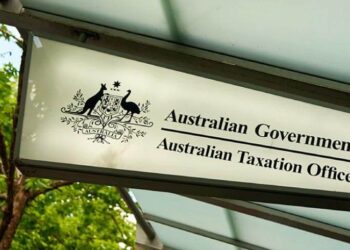NetActuary managing director Brian Bendzulla explained that for a UK pension fund, the commissioner generally accepts the UK fund as a foreign superannuation fund for the purposes of subdivision 305-13 of the ITAA 1997.
The UK funds are assessable under section 305-60 if within six months of tax residency, or otherwise under section 305-70 of the ITAA 1997.
For lump sum payments from a foreign superannuation fund, applicable earnings after six months tax residency are worked out as follows:
- The amount vested just before start day plus contributions made by or in respect of the member during the period after the start date plus transfers from any other foreign super fund after the start date.
- Deduct the above from total amount vested in the member when the lump sum was paid to Australia before any deductions for foreign tax.
- Multiply the resulting amount by the proportion of Australian residency days since the start date divided by total days.
- Add all previously exempt fund earnings.
“The amount cannot be less than zero. The balance of the benefit is not assessable income. The commissioner does not have the discretion to extend the tax-free six-month period — even if the taxpayer was not able to transfer in this period through no fault of their own,” Mr Bendzulla explained.
Under section 305-80 of ITAA 1997, a taxpayer who is transferring their foreign super benefits directly to an Australian complying fund, he said, can elect to have the Australian super fund pay the tax on the applicable fund earnings if the taxpayer no longer has an interest in the overseas fund immediately after the payment.
“The advantage is the 15 per cent super fund rate may be less than the taxpayer’s marginal tax rate,” he explained.
However, one of the unfair aspects with UK transfers, Mr Bendzulla explained, is that the commissioner has now moved the currency transaction to time of receipt but does not use a similar basis for the growth or assessable component.
The commissioner’s view on the application of subsection 960-50(1) of ITAA in relation to foreign currency translation to Australian dollars is expressed in ATO ID2015/7 for foreign super funds, he said.
“It states that the applicable fund earnings amount should be calculated by deducting the Australian dollar equivalent of the amount vested in the foreign fund just before the day the taxpayer first became an Australian resident, from the amount received from the foreign fund,” he said.
“The amount should be translated using the exchange rate applicable on the day of receipt of the relevant lump sum in Australia, i.e. a single translation rate. This is different to how the commissioner treated currency conversions a couple of years ago and how defined benefit growth is assessed.”
Many UK entitlements are expressed as defined benefits, he explained. Such an entitlement is funded by both capital and investment earnings.
“In times of low returns, more capital is required and vice versa. Currently, if one subtracts the current cash equivalent transfer value from one from some years ago, it overstates the growth component,” he noted.
“The problem is the commissioner is not being even-handed in applying the same logic to how the growth component is calculated.”



Why transfer a UK or other overseas super fund to Australia when you can transfer into an overseas life assurance policy which is not much more taxed than an Australian accumulation fund but a lot more flexible and much cheaper to administer?